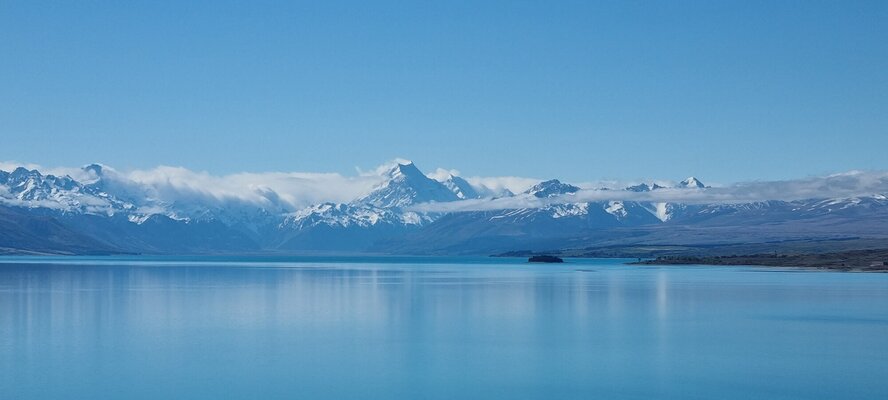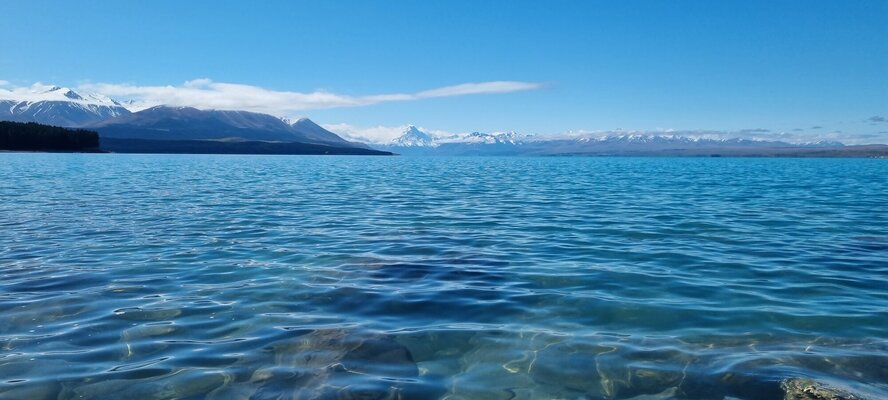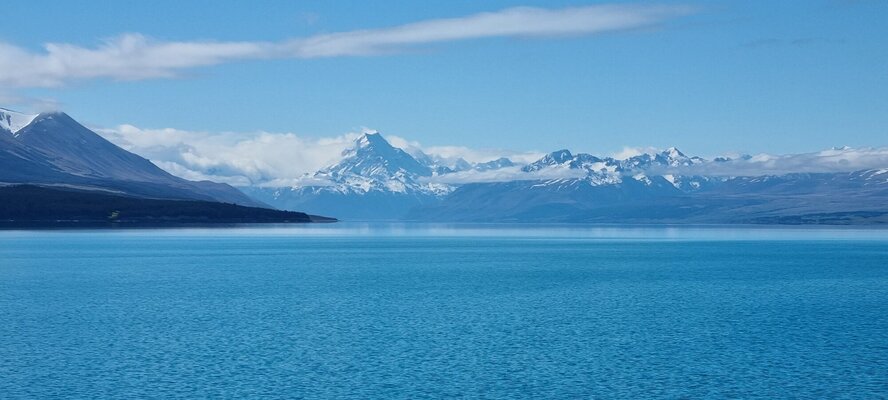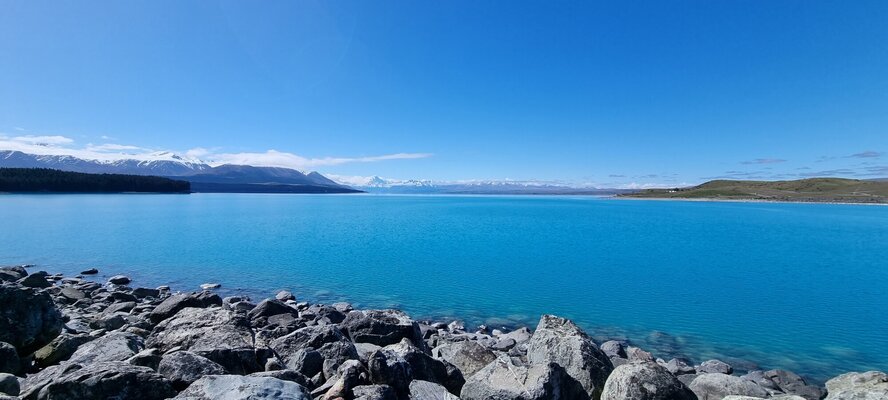Ok, thanks for responding. Is there a possibility that being on the ocean is being an affector here? Or is it just plain the hight. In @Chookwagn's pictures, it looked as though the snow went down to the base or close to it? I've been up My. Washington in New Hampshire, and I didn't see snow there either.Wyoming which is farther south than Maine but Maine is near the ocean and Wyoming isn't. Besides our mountains are higher than yours.
Navigation
Install the app
How to install the app on iOS
Follow along with the video below to see how to install our site as a web app on your home screen.
Note: This feature may not be available in some browsers.
More options
You are using an out of date browser. It may not display this or other websites correctly.
You should upgrade or use an alternative browser.
You should upgrade or use an alternative browser.
Photo Critique Club
- Thread starter Kiki
- Start date
Being near the ocean has a great modifying effect on your local climate. Altitude also has a big effect. The fact that he is in the southern hemisphere and just coming out of winter also makes a difference since the winter snows on those mountains haven't hit the heat of summer yet.Ok, thanks for responding. Is there a possibility that being on the ocean is being an affector here? Or is it just plain the hight. In @Chookwagn's pictures, it looked as though the snow went down to the base or close to it? I've been up My. Washington in New Hampshire, and I didn't see snow there either.
Ok. That's interesting. I didn't know that the ocean would have an effect on where I live and go. New Zealand is just coming out of winter? Wow, so different from here!Being near the ocean has a great modifying effect on your local climate. Altitude also has a big effect. The fact that he is in the southern hemisphere and just coming out of winter also makes a difference since the winter snows on those mountains haven't hit the heat of summer yet.
Well, that's because the geology of Maine isn't Volcanicly active anymore. Your mountains are all old and worn down. NZ is hundreds of millions of years younger than Maine and still tectonically awake.Maybe, but I think you're closer. I go on lakes and don't see snowy mountains in the distance. Maybe a mountain, but not a snowy one.
So volcanoes have an effect? What about one that has never erupted? I believe that there is an unknown volcano in the town next to me. In my small volcanic knowledge, this deep 'pond' is actually a volcano that has never erupted. (One way I know this is a volcano other than the fact no one can find the bottom is because it's in a white granite quarry.)Well, that's because the geology of Maine isn't Volcanicly active anymore. Your mountains are all old and worn down. NZ is hundreds of millions of years younger than Maine and still tectonically awake.
TL;DR "It's a little more complicated but has more to do with elevation and weather patterns than the actual volcanoes" Also, there are at least 4 ancient volcanic sites in Maine.So volcanoes have an effect? What about one that has never erupted? I believe that there is an unknown volcano in the town next to me. In my small volcanic knowledge, this deep 'pond' is actually a volcano that has never erupted. (One way I know this is a volcano other than the fact no one can find the bottom is because it's in a white granite quarry.)

A bit more in depth answer.
Elevation does. Your mountains are all worn down so the snow melts (more or less, I know that's not always accurate in ME). Higher peaks worldwide usually keep snowpack longer, often almost all year. In general, the younger the mountain range, the higher and more rugged the peaks are because erosion hasn't worn them down over time. As a result, they're generally cooler at the summmits and exposed to moisture that's more abundant at higher elevations. Weather patterns have a lot to do with it too (like the jet stream, which def impacts Montana and Wyoming along with their high elevation and access to inland pacific moisture). Even AZ's highest peak has snow almost all year (at 12.6k feet) because temps at the summit are cool enough inside the summit crater to keep it all from melting. Proximity to moisture (like an ocean or like lake effect snow) can influence the volume of snowpack deposited (more moisture, more snow), but at the end of the day it's staying cooler longer that keeps it from melting off. NZ is very youn geologically, it's mountains are tall and rugged and it has cool temps and access to abundant moisture. So the views are often snow-topped (and they're transitioning through spring now so it's gradually getting warmer there where we're cooling off here.)
When it cools globally, more snow stays on the peaks longer, and builds up over millennia. If it goes on long enough, we get ice ages, and then when it warms, the glaciers melt and we end up here like we are in the Anthropocene today.
I'm not a climatologist, so please take this with a grain of salt. Im explaining it as best I can from what I've learned and had explained to me. I definitely would find better sources to verify me.

Bakbuk
Howdy!
Do I see a little INTJ here?TL;DR "It's a little more complicated but has more to do with elevation and weather patterns than the actual volcanoes" Also, there are at least 4 ancient volcanic sites in Maine.
A bit more in depth answer.
Elevation does. Your mountains are all worn down so the snow melts (more or less, I know that's not always accurate in ME). Higher peaks worldwide usually keep snowpack longer, often almost all year. In general, the younger the mountain range, the higher and more rugged the peaks are because erosion hasn't worn them down over time. As a result, they're generally cooler at the summmits and exposed to moisture that's more abundant at higher elevations. Weather patterns have a lot to do with it too (like the jet stream, which def impacts Montana and Wyoming along with their high elevation and access to inland pacific moisture). Even AZ's highest peak has snow almost all year (at 12.6k feet) because temps at the summit are cool enough inside the summit crater to keep it all from melting. Proximity to moisture (like an ocean or like lake effect snow) can influence the volume of snowpack deposited (more moisture, more snow), but at the end of the day it's staying cooler longer that keeps it from melting off. NZ is very youn geologically, it's mountains are tall and rugged and it has cool temps and access to abundant moisture. So the views are often snow-topped (and they're transitioning through spring now so it's gradually getting warmer there where we're cooling off here.)
When it cools globally, more snow stays on the peaks longer, and builds up over millennia. If it goes on long enough, we get ice ages, and then when it warms, the glaciers melt and we end up here like we are in the Anthropocene today.
I'm not a climatologist, so please take this with a grain of salt. Im explaining it as best I can from what I've learned and had explained to me. I definitely would find better sources to verify me.

Cool stuff.
A LITTLE?Do I see a little INTJ here?
Cool stuff.

And in my pictures the water is a lake not an ocean..... and that lake water is coldOk, thanks for responding. Is there a possibility that being on the ocean is being an affector here? Or is it just plain the hight. In @Chookwagn's pictures, it looked as though the snow went down to the base or close to it? I've been up My. Washington in New Hampshire, and I didn't see snow there either.
Beautiful!
New posts New threads Active threads
-
Latest threads
-
-
-
3week old chicks with tumors
- Started by PaigeBundy
- Replies: 1
-
injured leg on a hen, advice/diagnosis?
- Started by styxvai
- Replies: 0
-
-
-
Threads with more replies in the last 15 days
-
There is a time and place for shenanigans. (edit: THIS is that time and place)
- Started by azurbanclucker
- Replies: 481
-
Caged Bird and Parrot Thread!!!!
- Started by ShrekDawg
- Replies: 406
-
This is what a balanced layer feed with no treats delivers
- Started by Perris
- Replies: 133
-
-
-







